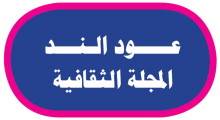Home > Books and Other English Content > A Democratic Audit of Jordan > Preface
Jordan: A Democratic Audit
Preface
Dr. Adli Hawwari
On 8 November 2019, Jordan marked the thirtieth anniversary of what was hoped to be a transformation of the country’s political system into a democratic one. The initial stage was promising and produced an assertive House of Deputies (HoD). Thirty years later, the governments in Jordan are still formed and dismissed at the discretion of the king. The basic freedoms of speech, assembly and other, are still restricted. People can be punished for exercising them.
King Hussein declared in October 1989 that the country would return to ‘democratic parliamentary life’. He died in February 1999, but the process he started continued after his son, Abdullah II, became the king.
At the end of 2010, mass protests took place in several Arab countries, including Jordan, to demand reforms. In 2019, mass protests returned to the streets and squares of Sudan, Algeria, Lebanon and Iraq. The economic policies of two governments led to the return of protests in Jordan.
After demonstrations in Jordan forced the removal of the PM, Hani al-Mulqi, in 2018, Omar al-Razzaz succeeded him. He faced the longest ever strike in Jordan. It was by the teachers in the public sector who previously went on strike and had an agreement that was supposed to improve their salaries. Although the strike had no political demands, it is clear that the economic problems causing hardships are inseparable from the way the country is ruled.
Although there was a promising start in 1989, it did not lead to further democratisation in the country. Thirty years after the ‘resumption of our democratic life’, Jordan cannot be considered a democratic country. However, the political scene in Jordan changed to some extent.
This book presents an assessment of the state of democracy in Jordan since the resumption announced by King Hussein in October 1989 until November 2019, when the PM, Omar al-Razzaz, reshuffled his unelected cabinet.
The appraisal is divided into two parts. The first covers 1989-2010. It is based on data provided by Jordanians who live in Jordan, through (a) interviews with officials, activists, and others—men and women; (b) a democratic audit, based on two questionnaires: one consists of fifteen questions. The other has ninety but includes the same fifteen questions.
The audit evaluates the state of democracy in four categories. (1) Citizenship, law and rights. (2) Representative and accountable government. (3) Civil society and popular participation. (4) Democracy beyond the state.
The second part of the evaluation covers 2011-2019. The updated assessment in this part is mine alone. It is based on my observations of the developments in Jordan during those years. I revisit the fifteen overarching questions asked in the two questionnaires.
An assessment of democracy in a given country cannot be done on the basis that democracy is a contested concept. The book is informed by Keane’s definition, which is based on Schumpeter’s. The latter’s definition is widely accepted. He considers democracy ‘a political method,’ and ‘an institutional arrangement,’ whose aim is to reach decisions, ‘legislative and administrative’ (p. 242).
Democracy, as defined by Keane (1991), ‘is best understood as a system of procedural rules with normative implications’ (p. 168). The rules are about making decisions, and ‘through which procedures such decisions are made’. The normative implications include ‘equal and universal adult suffrage; majority rule and guarantees of minority rights […]; the rule of law; and constitutional guarantees of freedom of assembly and expression and other liberties’ (pp. 168-169).
Moreover, in a democratic audit, democracy is considered the best form of government. For a system to remain democratic, it has to rest on two pillars: popular control and political equality (Klug, Starmer, and Weir 1996, p. 13).
Several factors make Jordan’s case particularly interesting to follow. Jordan is a Muslim majority state. It is a modern state in the sense that it was created in the twentieth century. It is ruled by a dynasty which claims descent from Quraysh-the tribe of the Prophet of Islam, Muhammad. It has a Muslim Brothers (MB) movement which was formed in the 1940s and operated legally since then. Unlike Syria, Tunisia, and Egypt before the demonstrations of 2010/2011, Jordan allowed the MB and its political party, the Islamic Action Front (IAF), to take part in the parliamentary and municipal elections that were held during the thirty years under assessment.
This book is a leaner, but considerably updated edition of my assessment of democracy in Jordan during 1990-2010. The first edition (2016) engaged with various theories about measuring and assessing democracy, including the methods and the standards to be used. Assessments of democracy and freedoms in the world are published annually by Freedom House and The Economist Intelligence Unit. The democratic audit had been used in assessing different countries, including the United Kingdom.
I have left out of this edition much of the theoretical discussions that are usually of greater interest in academic contexts. I updated the assessment to cover an additional decade to make the evaluation as up-to-date as possible in a book.
Moreover, I should also point out that the original research for this book was carried out in the context of revisiting the claims of the incompatibility between democracy and Islam/ism. This will explain references to Islam and the Muslim Brothers and Islamic Action Front in Jordan.
The democratic audit is the empirical track of the research. My conclusion regarding the theoretical in/compatibility is that the evidence is in favour of the compatibility. Since Jordan started what was described as a ‘democratic process’, I thought that the democratic audit can achieve two goals simultaneously: to establish how democratic the country became, and if the audit found Jordan to have become a democratic state, then the conclusion of compatibility would have been validated empirically.
Finally, I would like to point out that my academic research (2006-2012) and the expenses of my field trips during those years were self-funded at all stages. I visit Jordan at least once a year. All expenses are self-funded. Therefore, I owe no individual, research institution, or government any favour or debt that may influence the conduct of the research or the assessment presented in this book.
Adli Hawwari
London
March 2020
Adli Hawwari (2020). Reluctant Liberalisation: A Democratic Audit of Jordan, 1989-2019. London: Ud Al -Nad Ltd.

